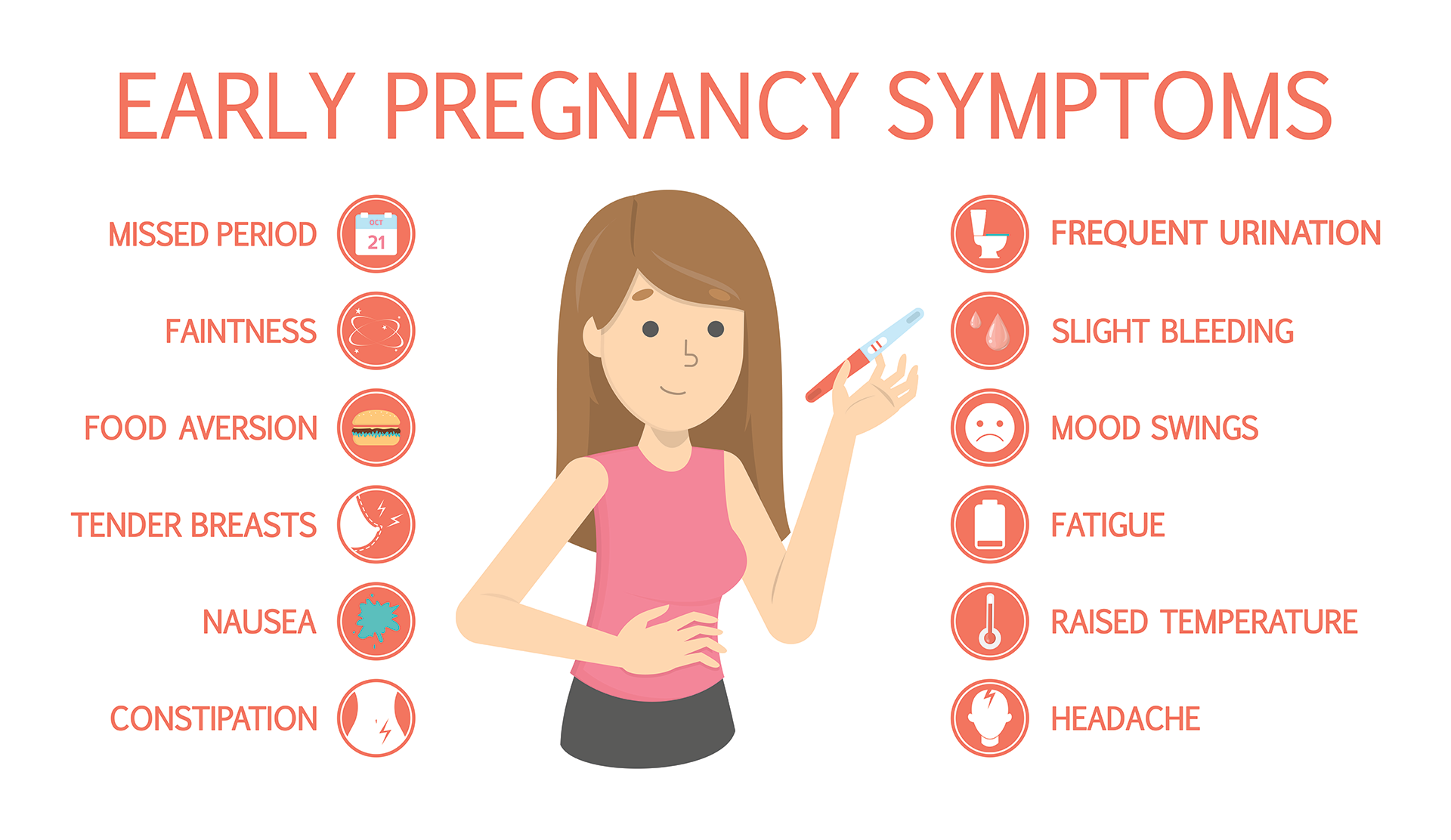
Pregnancy Symptoms: A Comprehensive Guide for Expecting Mothers
Pregnancy is a transformative journey that brings forth a myriad of physical, emotional, and hormonal changes within a woman’s body. Understanding the symptoms associated with pregnancy can help expectant mothers navigate this remarkable experience with greater awareness and preparedness. This comprehensive guide explores the common and less common symptoms of pregnancy, providing valuable insights into their timing, intensity, and potential implications.
Early Pregnancy Symptoms (Weeks 1-12)
- Missed period: The most common early sign of pregnancy is a missed menstrual period.
- Breast tenderness and swelling: Hormonal changes can cause breasts to become tender, swollen, and sensitive to touch.
- Nausea and vomiting (morning sickness): This classic pregnancy symptom typically occurs in the morning but can strike at any time of day.
- Fatigue: Extreme tiredness is common during early pregnancy as the body adjusts to the hormonal surge.
- Frequent urination: Increased blood flow to the kidneys can lead to more frequent trips to the bathroom.
- Food cravings and aversions: Changes in taste and smell can result in intense cravings for certain foods and an aversion to others.
- Mood swings: Fluctuating hormone levels can trigger emotional ups and downs.
- Headaches: Hormonal changes and increased blood flow can cause headaches.
- Constipation: Progesterone, a pregnancy hormone, can slow down digestion, leading to constipation.
- Bloating: Hormonal changes and increased blood flow can cause bloating and gas.
Mid-Pregnancy Symptoms (Weeks 13-27)
- Enlarged abdomen: The uterus grows significantly during mid-pregnancy, causing the abdomen to expand.
- Fetal movement: Expectant mothers may begin to feel the baby’s movements, known as quickening.
- Back pain: The growing uterus and weight gain can put pressure on the back, causing discomfort.
- Leg cramps: Increased blood flow and pressure on nerves can lead to leg cramps.
- Hemorrhoids: Increased pressure on veins in the rectum can cause hemorrhoids, which are swollen and painful veins.
- Varicose veins: Hormonal changes and increased blood flow can cause varicose veins, which are enlarged and twisted veins.
- Skin changes: Pregnancy hormones can cause skin to become darker, develop stretch marks, and experience acne.
- Increased appetite: As the baby grows, the mother’s nutritional needs increase, leading to an increased appetite.
- Swelling (edema): Fluid retention can cause swelling in the hands, feet, and ankles.
Late Pregnancy Symptoms (Weeks 28-40)
- Frequent Braxton Hicks contractions: These practice contractions prepare the body for labor.
- Pelvic pressure: The baby’s head descends into the pelvis, putting pressure on the pelvic floor muscles.
- Shortness of breath: The growing uterus can press against the diaphragm, making it harder to breathe.
- Heartburn and indigestion: Progesterone relaxes the valve between the stomach and esophagus, allowing stomach acid to reflux.
- Insomnia: Discomfort, frequent urination, and anxiety can interfere with sleep.
- Nesting instinct: A surge of energy and desire to prepare for the baby’s arrival.
- Cervical changes: The cervix begins to soften and dilate in preparation for labor.
- Bloody show: A small amount of blood-tinged mucus may be released as the cervix dilates.
Less Common Pregnancy Symptoms
- Hyperemesis gravidarum: Severe and persistent nausea and vomiting that requires medical attention.
- Gestational diabetes: A temporary form of diabetes that develops during pregnancy.
- Preeclampsia: A serious condition characterized by high blood pressure and protein in the urine.
- Placenta previa: A condition where the placenta covers the cervix.
- Abruptio placentae: A condition where the placenta separates from the uterus before delivery.
- Ectopic pregnancy: A pregnancy that occurs outside the uterus.
When to Seek Medical Attention
While most pregnancy symptoms are normal, it is crucial to seek medical attention if you experience any of the following:
- Severe or persistent pain
- Vaginal bleeding
- Fever
- Chills
- Dizziness or fainting
- Blurred vision
- Severe headaches
- Decreased fetal movement
Conclusion
Pregnancy is a remarkable journey marked by a wide range of physical, emotional, and hormonal changes. Understanding the symptoms associated with pregnancy empowers expectant mothers to navigate this transformative experience with greater confidence and preparedness. By being aware of the common and less common symptoms, women can identify potential concerns and seek medical attention when necessary. Regular prenatal care and open communication with healthcare providers are essential for ensuring a healthy and fulfilling pregnancy.